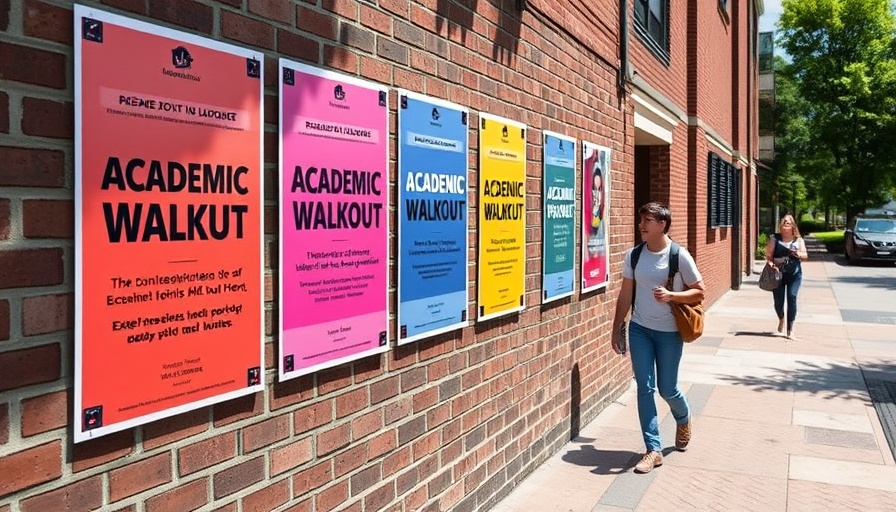
Georgetown Academic's Release: A Sign of Changing Times?
On May 14, 2025, Judge Patricia Giles of the Eastern District of Virginia made a pivotal ruling that resonates beyond the walls of a federal courtroom. The decision to release Badar Khan Suri, a postdoctoral fellow at Georgetown University, marks a significant moment in the ongoing tensions involving immigration policy and academic freedom in the United States.
Suri, originally from India, found himself detained in a Texas immigration facility for over two months after his apprehension on March 17, a consequence of a determination made by Secretary of State Marco Rubio that raised questions about foreign policy implications tied to Suri’s presence in the U.S. His situation speaks volumes about the precarious balance between national security and the freedom to express academic and political opinions.
The Impact of Immigration Policies on Academia
This case is a manifestation of the chilling climate faced by international scholars, particularly those whose teaching or research touches on politically sensitive topics. The Trump administration's focus on removing specific foreign academics, including those involved in pro-Palestinian activism, highlights an alarming trend. Legal studies and opinions, such as those by Mahmoud Khalil, another targeted academic, illustrate a broader crackdown on international scholars, casting a shadow of uncertainty over institutions known for championing free thought and debate.
The implications of such detentions extend beyond individual cases; they threaten the foundational ideals of academic institutions which rely fundamentally on diversity of thought and freedom of expression.
Reflections on Academic Freedom and Expression
The principle of academic freedom is under siege, as evidenced by Suri's detention. With courts around the nation grappling with legal challenges that put such freedoms at risk, one must ask: what does this mean for the future of academic expression and the integrity of educational institutions?
The repercussions are significant for students and educators alike, as they navigate a landscape rife with fear of repression. The recent news that Suri was granted his release without bond is a hopeful development, yet it raises another critical question: under what circumstances will this system continue to operate without targeting voices that challenge the status quo?
The Role of Public Awareness and Support
Public support for such cases can't be understated. The voices of students, fellow academics, and advocacy groups play a crucial role in campaigning against unjust immigration practices. By rallying for individuals like Suri, the broader community promotes a commitment to values that ensure the free exchange of ideas persists in academia.
The attention drawn by Suri's case sharpens the focus on policies that either uplift or undermine the integrity of institutions, showcasing an urgent need for advocacy to protect the intellectual contributions of all scholars.
Looking Ahead: What Lies in Store?
As we foresee future trends in immigration laws and their implications for academia, it's essential to foster an environment that values diverse perspectives. The evolving legal backdrop within which foreign scholars operate is dynamic, and continuous monitoring will be crucial in advocating for change.
In light of Suri’s release, experts speculate on potential reforms that might emerge. Could this case serve as a pivot to reshaping immigration policy as it pertains to academics? The path forward will undoubtedly require vigilance, action, and a commitment to shield those aiming to expand human knowledge against politically motivated persecution.
A Call to Action
As this poignant case illustrates, the struggle for academic freedom is far from over. It invites each of us to reflect on our role within our communities and advocate for those who stand on the frontlines of education and expression. Keeping our educational institutions open, inclusive, and supportive of all voices is a collective responsibility. Engaging in discussions about immigration reform and supporting fellow scholars actively can create a more robust foundation for future generations.
 Add Row
Add Row  Add
Add 




Write A Comment